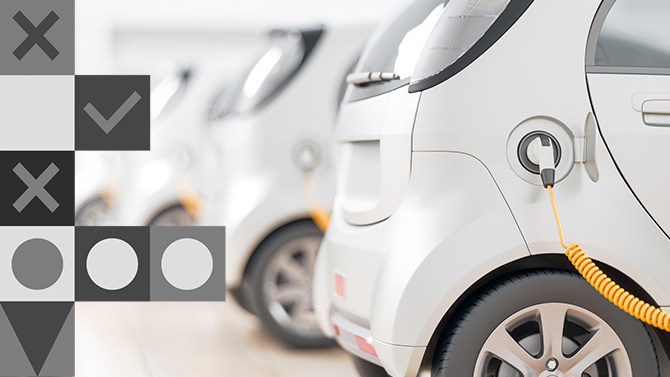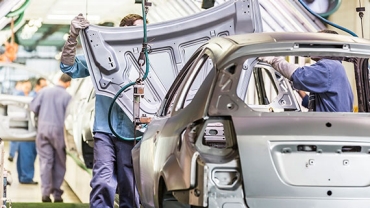
Ban on sale of new fuel-driven vehicles by 2030 is achievable
25/03/21
28 billion electric vehicle kilometres by 2030
The ambition of the Climate Agreement to sell only fully electric new vehicles in the Netherlands from 2030 is achievable. By that time, there will be enough affordable models on the market, enough charging points and enough green electricity to run these vehicles. That's according to the PwC study "The achievability of 28 billion electric vehicle kilometres by 2030".

Gradual increase in electric vehicle numbers is vital
Based on the National Charging Infrastructure Agenda, we assume that there will be 1.9 million fully electric vehicles on the road by 2030. Together they will drive about 28 billion kilometres. The gradual increase in the number of fully electric vehicles is vital to achieving the ambition to stop selling new fuel-driven vehicles by 2030.
To be successful, we have to make every effort now to effect the transition and overcome the constraints. If this does not happen, by 2030 there will be insufficient charging stations and green energy available and in nine years' time car dealers will be condemned to operate in a small market where choices are limited and expensive.
Five routes towards achieving the ambition
We have assessed the feasibility of only allowing new sales of fully electric vehicles from 2030 onwards from five different angles:
- The manufacture of electric vehicles
- The availability of affordable electric vehicles
- Tax incentives for zero-emission passenger vehicles
- The charging infrastructure required
- Electricity network
Manufacture and availability of electric vehicles
There are no insurmountable obstacles preventing the ongoing development of a market for electric vehicles As a result, enough affordable models will be available by 2030, not only for lease car drivers, but also for consumers of the cheaper and mid-range models. Moreover, we expect an used-car market to emerge.
Tax incentives for zero-emission passenger vehicles
The phasing out of tax incentives by 2025 as currently envisaged will not prevent a further increase in the number of electric vehicles, because by then the average price of an electric vehicle is expected to have fallen below that of a fuel-driven vehicle.
The charging infrastructure required
The number of charging stations that will have to be installed by 2030 is considerable: over six hundred a day. But plans for this are at an advanced stage and investors are showing interest.
Electricity network
The plans for upgrading the electricity network will provide enough power to run 1.9 million vehicles. The fact that these vehicles use only four percent of the total amount of electric power reinforces this conclusion. Moreover, electric vehicles help to improve the business case for generating sustainable electricity. After all, surplus electricity can be stored in the batteries of these vehicles.
Wanted: an integrated mobility strategy from the government
The optimistic conclusion that the transition to electric driving will be so advanced by 2030 that sales of new fuel-driven vehicles can be stopped without major objections does not mean that the government can take its foot off the accelerator, so to speak. Further action is vital because after 2030 the pace of change will have to be fast enough to ensure that further transition towards 2050 can continue unabated.
By 2050, all cars will have to be electric. We therefore call for some clarity to be provided for all public and private parties so that they can actually implement their plans and strategies relating to electric vehicles. "Make objectives explicit in policy, legislation and regulations. Provide all possible clarity and certainty to all parties involved - including the public - to remove uncertainty and concerns about investment plans," the study advises.
The study also calls for an integrated policy strategy, because the transition to sustainable mobility is much broader than the transition from fuel-driven to electric vehicles. This integrated mobility strategy must take account of all aspects including public transport, parking policy, making cities low-traffic, the design of transfer stations and locations for housing development.
"Make objectives explicit in policy, legislation and regulations. Provide all possible clarity and certainty to all parties involved - including the public - to remove uncertainty and concerns about investment plans."
Contact us

Tax Partner, EMEA Connected Tax Compliance Lead, PwC Netherlands
Tel: +31 (0)62 013 85 60


















